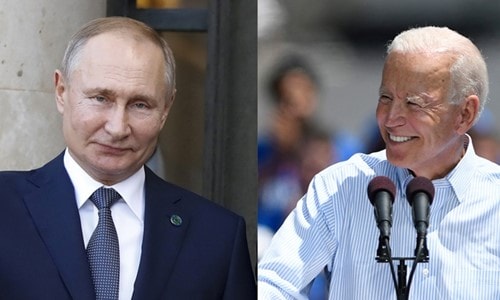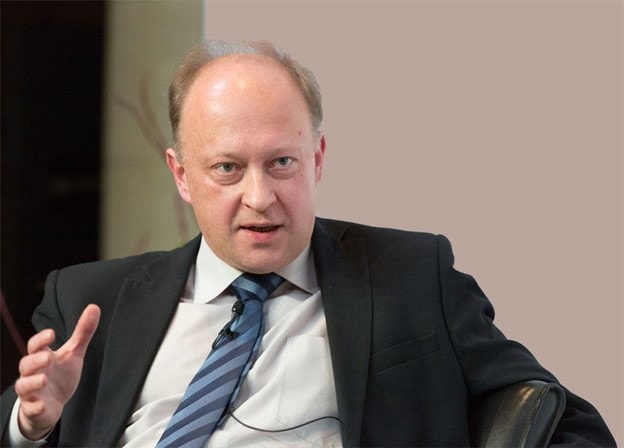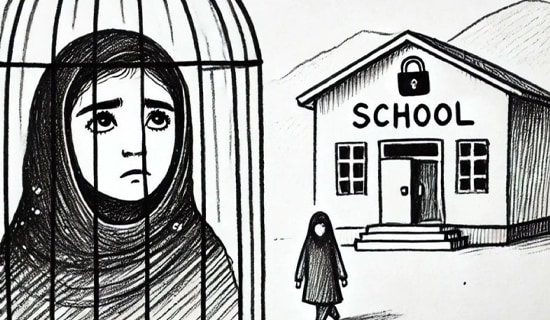Andrei Kortunov, the General Director of the Russian International Affairs Council [RIAC] is paradoxically optimistic about the results of the upcoming Biden-Putin summit in Geneva on June 16, 2021. Yes, Russia regarded Donald Trump as well disposed to Putin and Russia, and the Democrats are the party constantly pointing suspicion at Russia. However, Trump's praise of Putin at the 2018 Helsinki Summit, merely produced a backlash in Washington that contributed to the downward spiral in bilateral relations. Trump also entertained unrealistic hopes about what he could achieve in his solo personal diplomacy vis a vis Putin. Biden and Putin, in contrast are far from fond of each other and therefore the summit will be realistic and all business. Joe Biden, unlike his predecessor, also brings to the table consistent advocacy for arms control, a preference for multilateralism, and respect for traditional diplomacy, and this will facilitate talks with Putin.
Kortunov's article titled "The Sense in Negotiations" follows below:[1]

Putin and Biden (Source: Globaltimes.cn)
"Any meeting between Moscow and Washington’s leaders inevitably becomes an important event in international affair. Once, such summits decided the fate of the entire world, which observed the negotiations between the Kremlin and the White House on strategic weapons and acute regional problems, with bated breath, and looked for any political signals dispatched from the two superpowers’ capitals on the eve of the next round.
"The bipolar world era is long gone and US-Russian relations are no longer the main axis of international politics. However, the intrigue of bilateral meetings on the summit lever remains. As in the past, interaction between the two countries is built on the top-down principle. The meetings of the two leaders provide the initial impetus to the cumbersome bureaucratic mechanisms in Moscow and Washington.
"Thus, diplomats, the military and state officials begin the tedious work on specific issues; interaction between the private sector and civil society perks up; media rhetoric gradually mellows; bilateral cultural, educational and scientific projects quietly revive.
"However, there were unfortunate exceptions to this general rule. For example, the last full-fledged American-Russian summit held in Helsinki in July 2018, didn’t provided a catalyst for improved bilateral relations. On the contrary, Donald Trump and Vladimir Putin’s meeting in the Finnish capital provoked a sharp rejection in the anti-Russian-minded Washington establishment. As a result, upon his return home, the U.S. president had to make awkward excuses to his supporters and opponents. So, relations between the two countries continued to deteriorate rapidly after the meeting.

Trump and Putin at Helsinki (Source: Voanews.com)
"Probably, no one would want to see the Helsinki scenario repeating in Geneva in June of 2021. But are there good reasons to hope that this time the result will be different? To answer this question, let’s compare the stances of Donald Trump and Joseph Biden towards American-Russian summits and to relations between the two states as a whole.
"First of all, in Helsinki, Trump in fact was eager to ingratiate the Russian leader. The Republican president not only refrained from publicly criticizing his Russian colleague, but also complimented him extravagantly. This behavior expectedly caused not just temporary acute irritation, but fury in Washington, including in Trump administration. Joe Biden has known Vladimir Putin for many years. He has not set himself the objective of ingratiating the Russian leader. As far as one can tell, the two politicians do not have much sympathy for each other, and this more than grudging attitude is unlikely to change after their Geneva meeting.
"Additionally, it’s important to note that in Helsinki, Trump, as usual, strove for a spectacular personal victory in the foreign policy field. He believed that he was able to outdo Barack Obama and his 'Russian reset' policy and somehow to 'get along with Putin,' turning Russia, if not into an ally, then at least into a strategic partner of the US. Judging by everything, Biden has different plans.
"The new American president understands very well that in the foreseeable future a spirit of rivalry (and in some cases, direct confrontation) will remain in Moscow-Washington relations. Moscow and Washington’s perceptions of the modern world about what is legal and illegal, fair and unfair and where the new world order is headed and what is should be) diverge too much. Therefore, the point is not in turning a strategic confrontation into a strategic partnership, but rather in lowering the risks and costs of this inevitably costly and lengthy confrontation.
"Finally, Trump simply had a lot more time to prepare for the Helsinki meeting than Biden had to prepare for Geneva. Trump journeyed to Finland only a year and a half after entering office. Biden plans to meet with Putin less than five months after his inauguration. Preparations for Geneva meeting are undoubtedly in crisis-mode, which should also lower the level of expectations about the results of the upcoming summit.
"The enumerated differences between Biden and Trump seem to lead to the conclusion that one shouldn’t count on a particularly successful result from the meeting. However, one shouldn't overlook a slew of other characteristics in the current US administration’s foreign policy style, which allow us to regard the June summit with cautious optimism.
"First, Donald Trump never attached importance to arms control, in the presumptuous belief that the US is always capable of winning any [arms] race (be it with Moscow or Beijing). Therefore, under the former master of the White House, this most important dimension of bilateral relations has been almost completely demolished, with all the ensuing negative consequences for other aspects of US-Russian cooperation and for global strategic stability.
"Biden, in contrast, remains a strong supporter of arms control, as he affirmed with his decision to prolong the bilateral START III Treaty. There are grounds for hoping that in Geneva, the leaders will be able to at least start discussions on a new agenda in this field, including the problems of space militarization, cyberspace, hypersonics, rapid global strike capability, autonomous lethal systems, and so on. A dialogue on arms control cooperation beyond START III treaty does not promise quick solutions and will be difficult for both sides. But the sooner it begins, the better it will be for the two countries and for the international community in general.
"Second, Trump never loved multilateral formats and did not consider them productive. Apparently, he sincerely believed that on his own, he was capable of solving any acute international problem, be it the Israeli-Palestinian conflict or the North Korean nuclear missile programs.
"Seemingly, Biden has no such illusions. He not only invariably stresses the importance of multilateralism, but is acutely aware that in many regional conflicts and crises, interaction with Russia is indispensable. Therefore, in Geneva dialogue is possible on Afghanistan, on the Iran nuclear deal, on the very same North Korea and even on Syria. Probably, Biden will be unable to reach an agreement with Putin on all of these topics, but even the possibility of a preliminary discussion on them at the summit, should be welcomed.
"Third, Trump was most unfond of professional diplomats and, it seems, didn’t attach high regard to the diplomatic dimension of foreign policy.
"Unfortunately, the Russian-American 'war of embassies' started before Trump, but he not only didn’t put an end to it, but imparted to it a new extent and severity, previously unseen in the history of bilateral relations.
"Unfortunately, the 'war of embassies' continues after Trump. But President Biden, who has a vast experience in foreign policy, understands and holds diplomacy in a higher regard.
"It cannot be excluded that one practical result of the Geneva summit will be the restoration of full-fledged work of diplomatic missions in Washington and Moscow, as well as the reconstruction of the two countries' consular networks on each other's territories that was totally destroyed in recent years. Consular services may not be very visible in the background of great politics, but for majority of ordinary Russians and Americans reacquiring fast and efficient visa services would definitely outweigh many other potential gains from the Geneva summit."

Andrey Kortunov (Source: Dialogorg.ru)
[1] Iz.ru, May 26, 2021.




